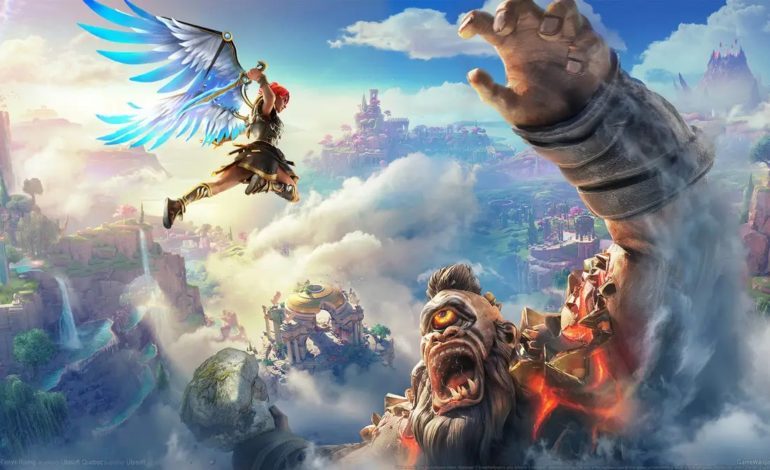

Last month, it was revealed that Ubisoft has canceled a sequel to Immortals Fenyx Rising. Today, a new report has shared more details on the game, codenamed Oxygen. Developers wanted to create a Polynesian Action-Adventure title that would’ve combined traits from Elden Ring and The Legend of Zelda: The Wind Waker, two of the most beloved games of all time.
SCOOP: Ubisoft’s cancelled Immortals sequel was meant to be a mix of Elden Ring and Legend of Zelda: Wind Waker, set across a fictionalized Polynesian archipelago that stretched from New Zealand to Hawai’i.
And a break from the Ubi formula.
My story:https://t.co/SCwRoYquol
— Stephen Totilo (@stephentotilo) August 21, 2023
Development on Oxygen/Immortals 2 began in 2021. Two sources familiar with the project but not authorized to speak told Axios that the plan was to set the game across a fictionalized version of the Polynesian archipelago. The sequel took longer to get made over the first game due to its scope and revisions to the underlying Assassin’s Creed game engine that Oxygen/Immortals 2 would use. There was also a team kept small as Ubisoft focused resources on the upcoming Assassin’s Creed Red.
By Spring of this year, an internal demo was available with several playable hours to play. The company was at a juncture as to fund full development of Oxygen/Immortals 2 or nix it all together.
Gameplay mechanics included the player’s character having the ability to gain favor with various Polynesian gods and gain elemental powers and shape-shift, while gaining new tattoos based on the choices that were made as the game’s story progressed. Players would hop from island to island, each being a fictional version of places like New Zealand, Tahiti, Easter Island, and Hawai’i. Players would have to manage how their in-game actions impacted the land around them inspired by the Polynesian concept of mana.
Immortals 2 was going to be a departure from the original game, getting rid of the narrator, losing its emphasis on solving puzzles and offering a more malleable story where player choice was impactful. The game’s graphics were going to be more realistic too. Ubisoft also considered rebranding the game as an original game and not a sequel.
“The goal was also to make a game very different from the rest of the Ubisoft portfolio,” one source told Axios.
Instead of the typical Ubisoft open-world game with a map filled with quest markers and players getting guided with a compass or arrow that directs them to their next objective, Oxygen/Immortals 2 was going to deviate from it. The developers planned to drop a lof of the helpers in favor of requiring players to search harder to figure out where to go, by tracking animals, following the wind or navigating via the position of the stars in the in-game sky.
At the end of the day, concerns over cost was the deciding factor into the cancelation of the title. As news of the cancelation broke, a Ubisoft rep told Axios the company was “redirecting and reallocating some creative teams and resources within the Quebec studio to other unannounced projects. The expertise and technologies these teams developed will serve as an accelerator for the development of these key projects focused on our biggest brands.”
That cancelation caught the game’s developers by surprise, one source said.
Play games, take surveys and take advantage of special offers to help support mxdwn.
Every dollar helps keep the content you love coming every single day.
